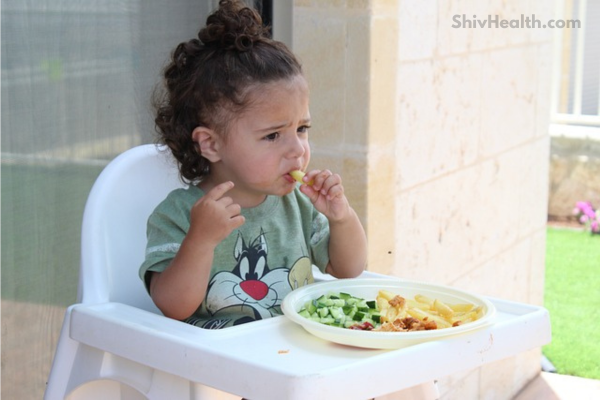Ensuring a child’s proper growth and development requires a well-balanced diet filled with essential nutrients. A child’s formative years are crucial for cognitive, physical, and emotional development. Parents and caregivers often wonder which foods best support these developmental milestones. This guide will explore the best foods for child development, focusing on their nutritional benefits and how they contribute to a healthy growing body and mind.
Why Nutrition Matters in Child Development
Good nutrition plays a vital role in shaping a child’s future. It impacts their brain development, immune system, and overall physical growth. The best foods for child development are nutrient-dense and provide the energy and building blocks children need during their formative years.
Nutrients Essential for Growth
- Proteins: Aid in muscle growth and tissue repair.
- Calcium and Vitamin D: Essential for building strong bones and maintaining healthy teeth.
- Omega-3 Fatty Acids: Support brain development and improve cognitive function.
- Iron: Supports oxygen transport and brain development.
- Zinc: Promotes a strong immune system and healthy cell growth.
- Vitamin C: Strengthens the immune system and enhances iron absorption.
Let’s dive into the best foods for child development and understand how they can support a growing child’s needs.
1. Milk and Dairy Products
Milk, yogurt, and cheese provide abundant calcium and vitamin D, which are vital for maintaining strong bones and healthy teeth. Additionally, these foods provide high-quality protein, necessary for muscle repair and growth. Yogurt, particularly those fortified with probiotics, also supports gut health, which is vital for a strong immune system.
Tip: Opt for unsweetened or low-sugar varieties to avoid excess sugar consumption.
2. Eggs
Eggs are packed with essential nutrients, including high-quality protein, vitamins D and B12, and choline. Choline is particularly crucial for brain development and memory support, making eggs an excellent breakfast option for children.
How to Include: Prepare scrambled eggs, omelets with veggies, or boiled eggs for easy snacks.
3. Fatty Fish
Salmon, mackerel, and sardines are rich in omega-3 fatty acids, particularly DHA, which is essential for brain development and vision. Omega-3s are also linked to better concentration and reduced hyperactivity in children.
Serving Idea: Grill salmon with a sprinkle of herbs, or prepare fish patties for a fun and nutritious meal.
4. Whole Grains
Whole grains like oats, brown rice, and quinoa provide a steady release of energy, fiber, and essential B vitamins. These nutrients aid in brain function and keep children energized throughout the day.
Quick Recipes: Serve oatmeal topped with fruits or prepare a quinoa salad with colorful veggies.
5. Fruits and Vegetables
Brightly colored fruits and vegetables are among the **best foods for child development** because they are rich in vitamins, minerals, antioxidants, and fiber.
Best Choices:
- Carrots: High in beta-carotene, promoting good vision.
- Berries: Rich in antioxidants that promote and protect brain health.
- Spinach and Kale: Excellent sources of iron and folate for energy and cell growth.
- Bananas: Deliver instant energy and are rich in potassium, supporting muscle health and function.
Encourage children to eat a rainbow of fruits and vegetables daily to ensure they get a variety of nutrients.
6. Nuts and Seeds
Nuts like almonds, walnuts, and seeds like chia and flaxseeds are loaded with healthy fats, protein, and minerals. Walnuts, in particular, are great for brain development due to their high omega-3 content.
Caution: Always monitor for allergies and serve age-appropriate portions.
Snack Idea: Prepare trail mix with dried fruits, nuts, and seeds for a portable energy booster.
7. Lean Meats and Poultry
Lean meats like chicken and turkey are rich sources of protein, iron, and zinc. Iron plays a vital role in transporting oxygen throughout the body and supporting cognitive development. Including these foods in your child’s diet can prevent iron deficiency, which is common in growing children.
Easy Meals: Grilled chicken wraps or turkey sandwiches can make mealtime enjoyable and nutritious.
8. Beans and Legumes
Beans, lentils, and chickpeas are plant-based protein powerhouses. They are also rich in iron, fiber, and other essential minerals, making them perfect for vegetarian families.
Fun Idea: Make hummus from chickpeas or prepare lentil soup for a comforting dish.
9. Sweet Potatoes
Sweet potatoes are a kid-friendly, nutrient-dense food. They are loaded with beta-carotene, which converts to vitamin A in the body and supports vision and immune health.
Serving Tip: Bake sweet potato fries or mash them as a side dish for meals.
10. Water
While not a food, water is essential for a child’s development. Staying hydrated improves focus, energy levels, and overall bodily functions. Minimize sugary beverages and promote regular water intake throughout the day.
Encouraging Healthy Eating Habits
Providing the best foods for child development is only part of the equation. Cultivating good eating habits is equally important:
- Lead by Example: Children tend to follow the eating habits they observe in their parents.
- Make It Fun: Use colorful plates, and present food in fun shapes or themes.
- Involve Kids in Cooking: Let children help prepare meals to pique their interest in healthy eating.
- Avoid Forcing: Encourage but don’t force children to eat certain foods. Instead, provide a variety of options and allow them to make their own choices.
Conclusion
A well-balanced diet is fundamental to supporting healthy child development. Including nutrient-rich foods like eggs, fatty fish, fruits, vegetables, whole grains, and dairy ensures that children get the essential vitamins and minerals they need to grow strong and thrive. By understanding the importance of these foods, parents can confidently provide the best foods for child development, paving the way for a healthy and bright future.
Remember, the journey to healthy eating starts with small steps. Encourage variety, practice patience, and create a positive eating environment to support your child’s overall growth and well-being.

